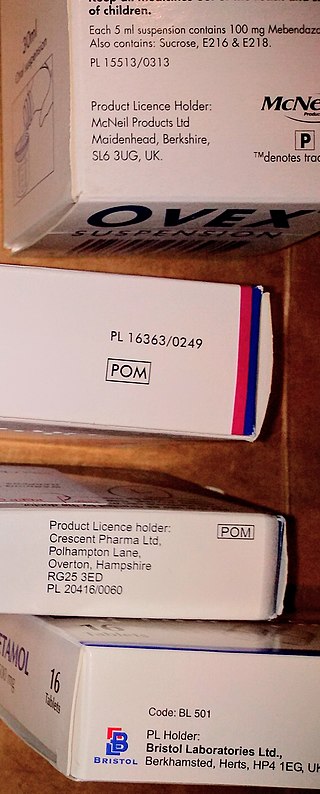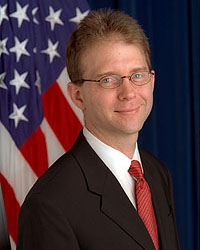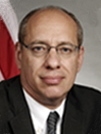Related Research Articles

The United States Food and Drug Administration is a federal agency of the Department of Health and Human Services. The FDA is responsible for protecting and promoting public health through the control and supervision of food safety, tobacco products, caffeine products, dietary supplements, prescription and over-the-counter pharmaceutical drugs (medications), vaccines, biopharmaceuticals, blood transfusions, medical devices, electromagnetic radiation emitting devices (ERED), cosmetics, animal foods & feed and veterinary products.

Pharmaceutical Research and Manufacturers of America, formerly known as the Pharmaceutical Manufacturers Association, is a trade group representing companies in the pharmaceutical industry in the United States. Founded in 1958, PhRMA lobbies on behalf of pharmaceutical companies. PhRMA is headquartered in Washington, DC.

A generic drug is a pharmaceutical drug that contains the same chemical substance as a drug that was originally protected by chemical patents. Generic drugs are allowed for sale after the patents on the original drugs expire. Because the active chemical substance is the same, the medical profile of generics is equivalent in performance compared to their performance at the time when they were patented drugs. A generic drug has the same active pharmaceutical ingredient (API) as the original, but it may differ in some characteristics such as the manufacturing process, formulation, excipients, color, taste, and packaging.

A prescription drug is a pharmaceutical drug that is permitted to be dispensed only to those with a medical prescription. In contrast, over-the-counter drugs can be obtained without a prescription. The reason for this difference in substance control is the potential scope of misuse, from drug abuse to practicing medicine without a license and without sufficient education. Different jurisdictions have different definitions of what constitutes a prescription drug.

Frank Edward Young was an American physician who served as Commissioner of Food and Drugs from 1984 to 1989 and later as a deputy assistant secretary in the United States Department of Health and Human Services. In 2013 he joined Braeburn Pharmaceuticals as executive vice president, clinical and regulatory affairs. In 2018, he became the executive vice president of clinical and regulatory affairs at TissueTech Inc.
Ovation Pharmaceuticals is an American manufacturer and distributor of pharmaceuticals products. It was founded in 2000 by Jeffrey Aronin and is headquartered in Deerfield, Illinois. A major office is also located near Lebanon, New Jersey. Ovation is a privately held corporation based on a business model of acquiring mature but under-promoted pharmaceuticals, as well as pharmaceutical candidates which are far along the development and FDA certification processes. Since 2009, the company has been wholly owned by the Danish pharmaceutical company Lundbeck.
Mylan N.V. was a global generic and specialty pharmaceuticals company. In November 2020, Mylan merged with Upjohn, Pfizer's off-patent medicine division, to form Viatris. Previously, the company was domiciled in the Netherlands, with principal executive offices in Hatfield, Hertfordshire, UK and a "Global Center" in Canonsburg, Pennsylvania, US.
Michael Pertschuk was an American attorney and advocate for consumer protection and public health. He served as a member of the Federal Trade Commission (FTC) from 1977 to 1984, and served as FTC Chair from 1977 to 1981. During his tenure, Pertschuk worked to strengthen the FTC's consumer protection powers.

Jay Lefkowitz is an American lawyer. He is a senior partner at the Kirkland & Ellis law firm, and he also served as President George W. Bush's Special Envoy for Human Rights in North Korea.

Christine A. Varney is an American antitrust attorney who served as the U.S. assistant attorney general of the Antitrust Division for the Obama Administration and as a Federal Trade commissioner in the Clinton Administration. Since August 2011, Varney has been a partner of the New York law firm Cravath, Swaine & Moore, where she chairs the antitrust department.

Jonathan David Leibowitz is an American attorney who served under President Barack Obama as Chair of the Federal Trade Commission (FTC) from 2009 to 2013. Leibowitz was appointed to the commission in 2004, and resigned in 2013. During Leibowitz's tenure, the FTC brought privacy cases against Google, Facebook and others for violating consumer privacy, as well as enforcement against "pay-for-delay" deals in which pharmaceutical companies paid competitors to stay out of the market. Prior to joining the FTC, Leibowitz was Vice President for Congressional Affairs from 2000 to 2004 of the MPAA.
Evergreening is any of various legal, business, and technological strategies by which producers extend the lifetime of their patents that are about to expire in order to retain revenues from them. Often the practice includes taking out new patents, or by buying out or frustrating competitors, for longer periods of time than would normally be permissible under the law. Robin Feldman, a law professor at UC Law SF and a leading researcher in intellectual property and patents, defines evergreening as "artificially extending the life of a patent or other exclusivity by obtaining additional protections to extend the monopoly period."
Authorized generics are prescription drugs produced by brand pharmaceutical companies and marketed under a private label, at generic prices. Authorized generics compete with generic products in that they are identical to their brand counterpart in both active and inactive ingredients; whereas according to the U.S. Food and Drug Administration's Office of Generic Drugs, generic drugs are required to contain only the identical active ingredients as the brand. Authorized generics compete with generics on price, quality and availability in the generic marketplace, and are marketed to consumers during and after what is commonly known as “the 180-day exclusivity period”.

Samuel Huston "Shy" Thompson Jr. was an American lawyer and college football coach. The Princeton University graduate served as head football coach at Oberlin College in 1897, at Lehigh University from 1898 to 1899, and at the University of Texas at Austin from 1900 to 1901, compiling a career college football record of 24–18–3. He was the first head coach at Texas to return for a second season. Thompson served as assistant U.S. attorney general under President Woodrow Wilson from 1913 to 1918 and on the Federal Trade Commission (FTC) from 1919 to 1927. He was the chair of the FTC from December 1, 1920 to November 30, 1921, and again from December 1, 1923 to November 30, 1924.

William Evan Kovacic is an American legal scholar who served as a commissioner of the Federal Trade Commission (FTC) from 2006 to 2011, including as its chairman from 2008 to 2009. He is a member of the Republican Party.
FTC v. Actavis, Inc., 570 U.S. 136 (2013), was a United States Supreme Court decision in which the Court held that the FTC could make an antitrust challenge under the rule of reason against a so-called pay-for-delay agreement, also referred to as a reverse payment patent settlement. Such an agreement is one in which a drug patentee pays another company, ordinarily a generic drug manufacturer, to stay out of the market, thus avoiding generic competition and a challenge to patent validity. The FTC sought to establish a rule that such agreements were presumptively illegal, but the Court ruled only that the FTC could bring a case under more general antitrust principles permitting a defendant to assert justifications for its actions under the rule of reason.
The Association for Accessible Medicines (AAM), Washington, D.C., is a trade association representing the manufacturers and distributors of generic prescription drugs, manufacturers and distributors of bulk pharmaceutical chemicals, and suppliers of other goods and services to the U.S. generic drug industry. As the primary lobby for makers of generic drugs, AAM's stated mission is to advocate for public policies that facilitate timely access to lower-cost, FDA-approved generic and biosimilar medicines by consumers and patients. Over the 10-year period 2008 through 2018, the use of generic drugs generated $2 trillion in U.S. healthcare savings.
Earl Wilson Kintner was the chair of the Federal Trade Commission from June 11, 1959, to March 20, 1961.
Mary Laurie Azcuenaga is an American attorney who served from 1984 to 1998 as a member of the Federal Trade Commission (FTC). As of 2017, Azcuenaga is one of just three political independents to serve on the FTC.
References
- ↑ "List of Commissioners, Chairwomen, and Chairmen of the Federal Trade Commission: 1915-2018 (as of November 2018)" (PDF).
- 1 2 3 4 "FORMER FTC CHAIRMAN LEWIS A ENGMAN DIES". The Washington Post.
- ↑ Freudenheim, Milt (13 July 1995). "Lewis Engman, 59,U.S. Official and Drug Industry Spokesperson". The New York Times.
- 1 2 3 "Lewis Engman". Nixon Library.
